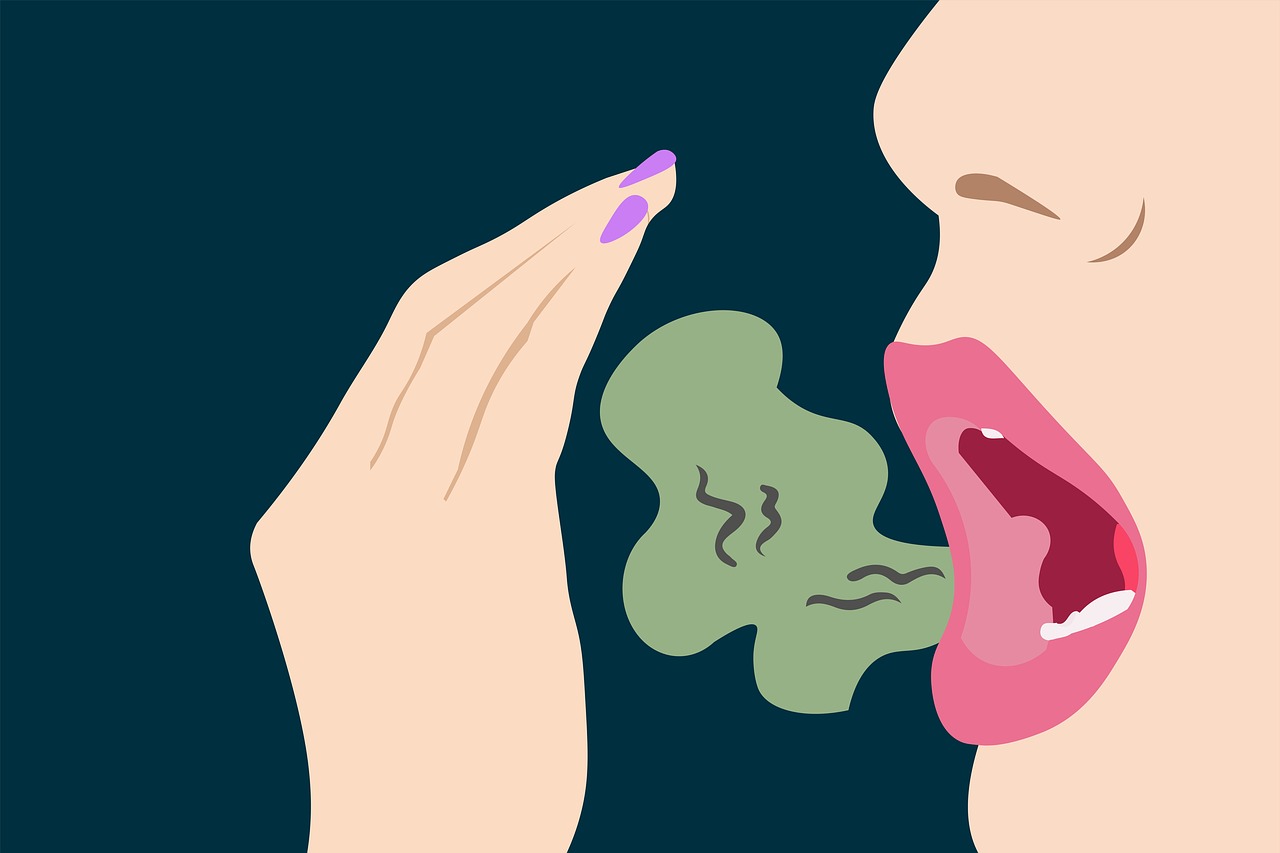Bad Breath (Halitosis)
Overview | Possible Causes | Care and Treatment | HOME REMEDies | When to Call the Doctor | References
Overview
Chronic Bad breath, also called halitosis, is something that mints, mouthwash or a good brushing can’t solve. Unlike “morning breath” or a strong smell that lingers after eating something with strong aftertaste or smell, halitosis remains for an extended amount of time and may be a sign of something more serious.
Certain foods, health conditions and habits are among the causes of bad breath. In many cases, you can improve bad breath with consistent proper dental hygiene. If simple self-care techniques don't solve the problem, see your dentist or physician to be sure a more serious condition isn't causing your bad breath.
Possible Causes
If quick bad breath fixes are only covering up the problem for a short time, something else may be happening in your body, including:
- Dental Issues: Cavities and deeper pockets from gum disease give bad breath bacteria extra places to hide in your mouth that are difficult to clear out when you’re brushing or cleaning between your teeth. Either can contribute to halitosis.
- Mouth, Nose and Throat Infections: Nose, sinus and throat issues that can lead to postnasal drip may also contribute to bad breath. Bacteria feeds on mucus your body produces when it’s battling something like a sinus infection, leaving you sniffly and stinky.
- Dry mouth: Saliva goes a long way for your dental health – and your breath. It rinses and removes unwanted leftovers from your mouth, helps break down food when you eat and provides disease-fighting substances to help prevent cavities and infections. If you don’t make enough saliva, one sign may be halitosis. Dry mouth can be caused by medications, certain medical conditions, alcohol use, tobacco use or excessive caffeine.
- Smoking and tobacco: Tobacco products wreak havoc on your body and your breath. Not only do many tobacco products leave their own odor on your breath; they can also dry out your mouth. Smokers are also more likely to develop gum disease, which can also add to halitosis.
- Other chronic conditions: While halitosis is most often linked to something happening in your mouth, it may also be a sign of gastric reflux, diabetes, liver or kidney disease.
Care & Treatment
To reduce bad breath, help avoid cavities and lower your risk of gum disease, consistently practice good oral hygiene. Further treatment for bad breath can vary, depending on the cause. If your bad breath is thought to be caused by an underlying health condition, your dentist will likely refer you to your primary care provider.
For causes related to oral health, your dentist will work with you to help you better control that condition. Dental measures may include:
- Mouth rinses and toothpastes. If your bad breath is due to a buildup of bacteria (plaque) on your teeth, your dentist may recommend a mouth rinse that kills the bacteria. Your dentist may also recommend a toothpaste that contains an antibacterial agent to kill the bacteria that cause plaque buildup.
- Treatment of dental disease. If you have gum disease, you may be referred to a gum specialist (periodontist). Gum disease can cause gums to pull away from your teeth, leaving deep pockets that fill with odor-causing bacteria. Sometimes only professional cleaning removes these bacteria. Your dentist might also recommend replacing faulty tooth restorations, a breeding ground for bacteria.
Home Remedies
To reduce or prevent bad breath:
- Brush your teeth after you eat. Keep a toothbrush at work to use after eating. Brush using a fluoride-containing toothpaste at least twice a day, especially after meals. Toothpaste with antibacterial properties has been shown to reduce bad breath odors.
- Floss at least once a day. Proper flossing removes food particles and plaque from between your teeth, helping to control bad breath.
- Brush your tongue. Your tongue harbors bacteria, so carefully brushing it may reduce odors. People who have a coated tongue from a significant overgrowth of bacteria (from smoking or dry mouth, for example) may benefit from using a tongue scraper. Or use a toothbrush that has a built-in tongue cleaner.
- Clean dentures or dental appliances. If you wear a bridge or a denture, clean it thoroughly at least once a day or as directed by your dentist. If you have a dental retainer or mouth guard, clean it each time before you put it in your mouth. Your dentist can recommend the best cleaning product.
- Avoid dry mouth. To keep your mouth moist, avoid tobacco and drink plenty of water — not coffee, soft drinks or alcohol, which can lead to a drier mouth. Chew gum or suck on candy (preferably sugarless) to stimulate saliva. For chronic dry mouth, your dentist or physician may prescribe an artificial saliva preparation or an oral medication that stimulates the flow of saliva.
- Adjust your diet. Avoid foods such as onions and garlic that can cause bad breath. Eating a lot of sugary foods is also linked with bad breath.
- Regularly get a new toothbrush. Change your toothbrush when it becomes frayed, about every three to four months, and choose a soft-bristled toothbrush.
- Schedule regular dental checkups. See your dentist on a regular basis — generally twice a year — to have your teeth or dentures examined and cleaned.
When to Call the Doctor
When simple self-care techniques don't solve your problem, see your dentist.
In most cases, your dentist can treat the cause of bad breath. If your dentist determines that your mouth is healthy and the odor is not of oral origin, you may be referred to your family doctor or to a specialist to determine the odor source and treatment plan.
To book online consultation to meet our expert doctor click on the link below







































































































